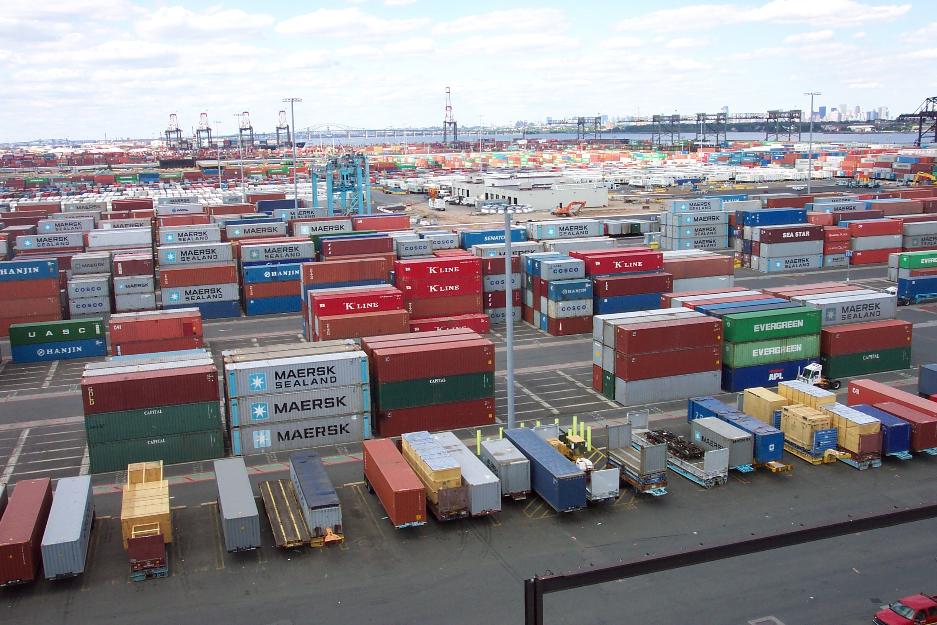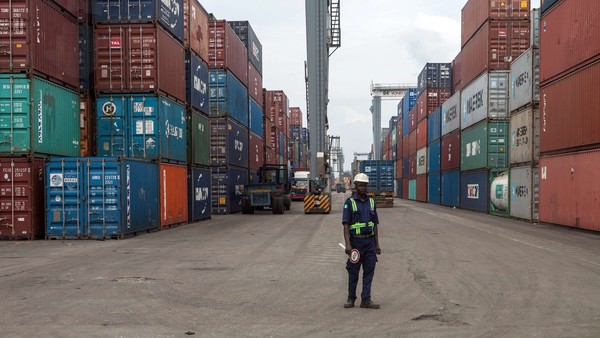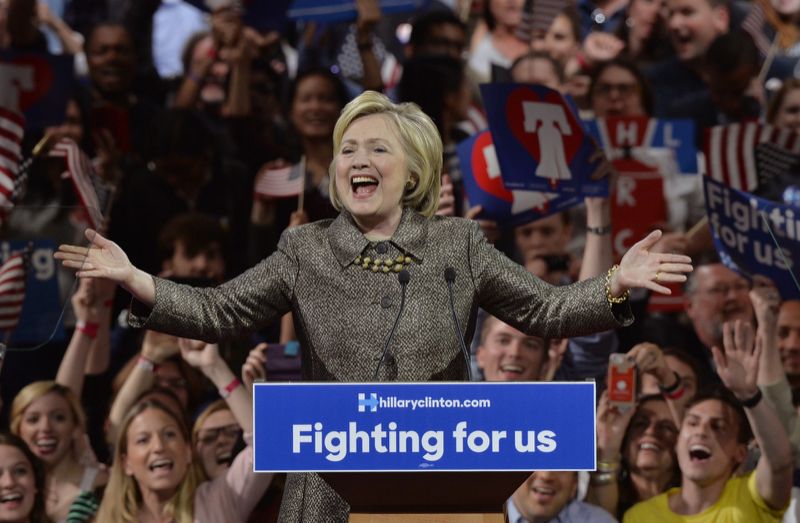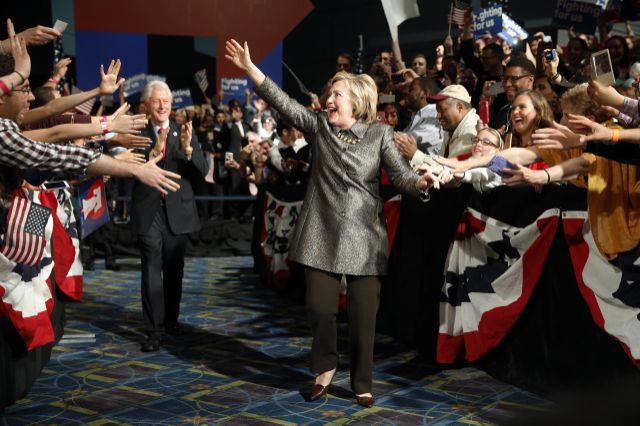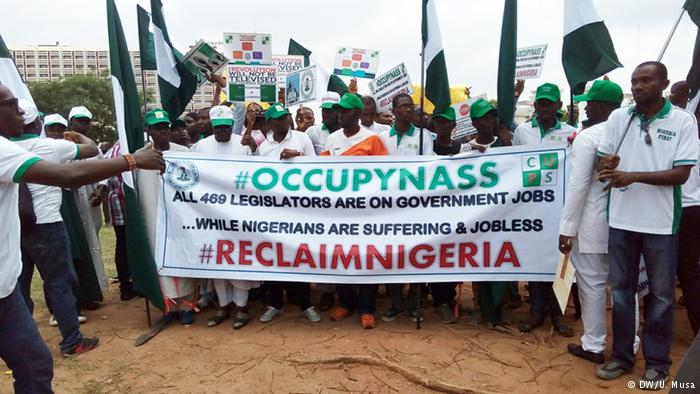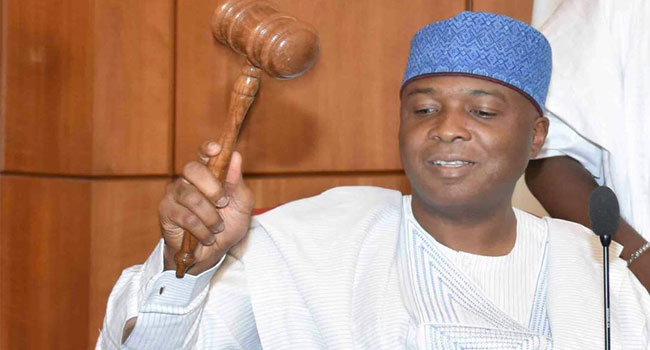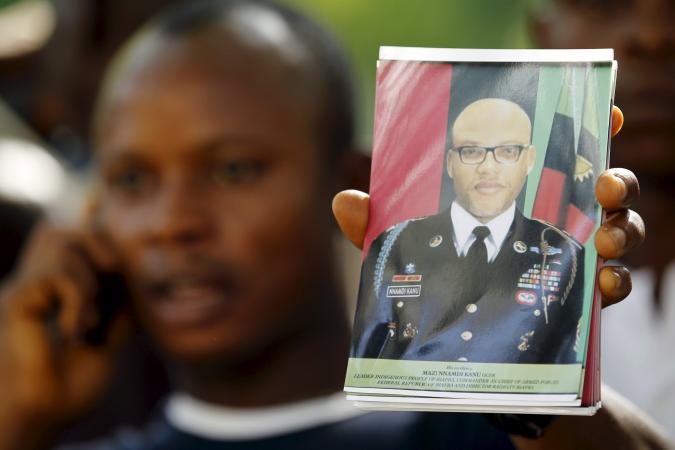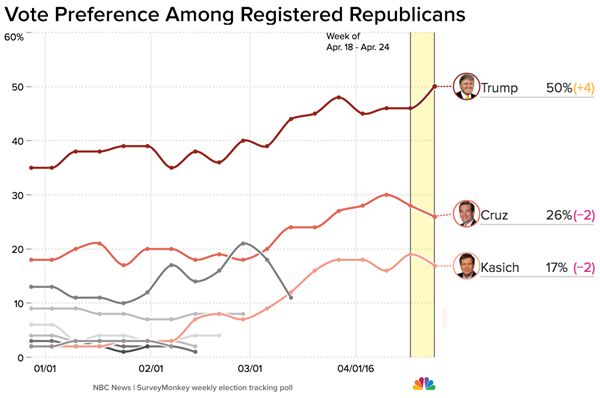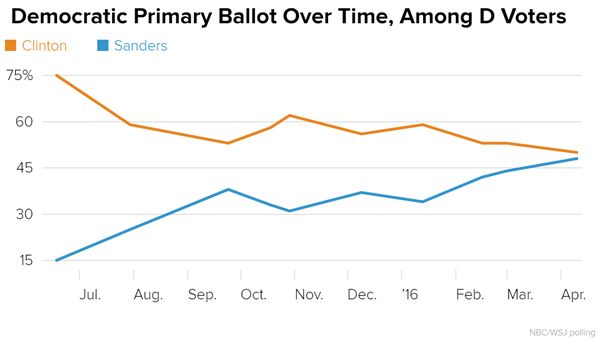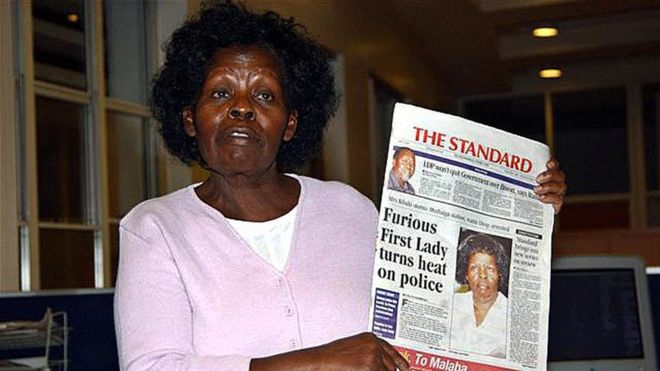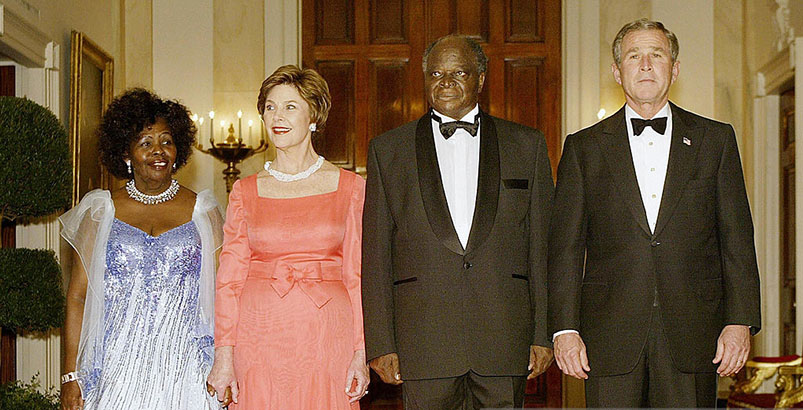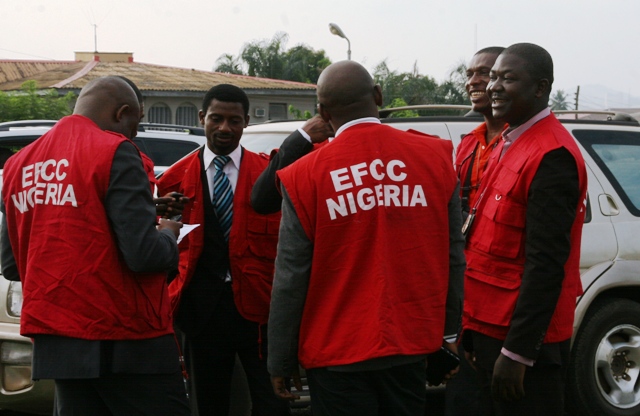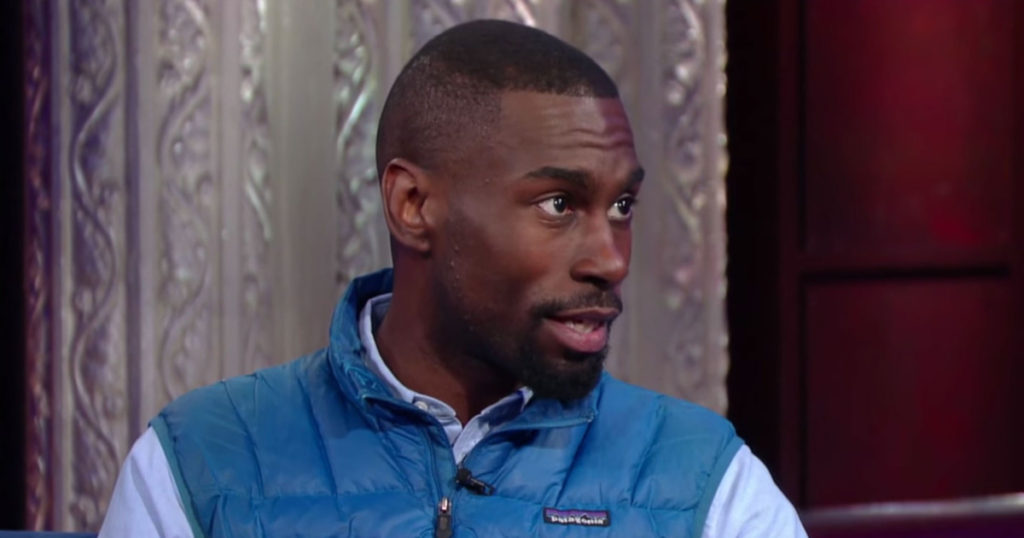
Hunter Walker, Hunter Walker/
BALTIMORE — There was one moment during protests in Ferguson, Mo., when DeRay Mckesson says he feared a casual gesture might cost him his life.
According to Mckesson, the incident occurred in the first few days of the demonstrations that engulfed the city following the Aug. 9, 2014, shooting of 18-year-old Michael Brown by a Ferguson cop. Mckesson said the protesters were suddenly rushed by one of the police forces who were aggressively cracking down on the nightly unrest. As the cops surged in, Mckesson said, the crowd dispersed — and his phone cord began to fall from his pocket as he ran.
In the weeks of protests that followed Brown’s death, the demonstrators frequently ran with their hands up. It was an effort to dramatize the gesture of surrender Brown allegedly made before he was shot. The posture was also a precaution for the protesters who didn’t want to join Brown and the other young black men who have died after being perceived as threats by police officers. With his phone cord slipping out of his shorts, Mckesson found himself making a crucial choice — should he lower his hands to secure the charger, or would moving toward his pocket get him shot?
Mckesson told Yahoo News he went for the cord because he “won’t live in fear.” He recounted the moment when he spoke to a room of students at University of Maryland, Baltimore County on Friday and explained why he decided to go from protesting against the system to trying to become part of it.
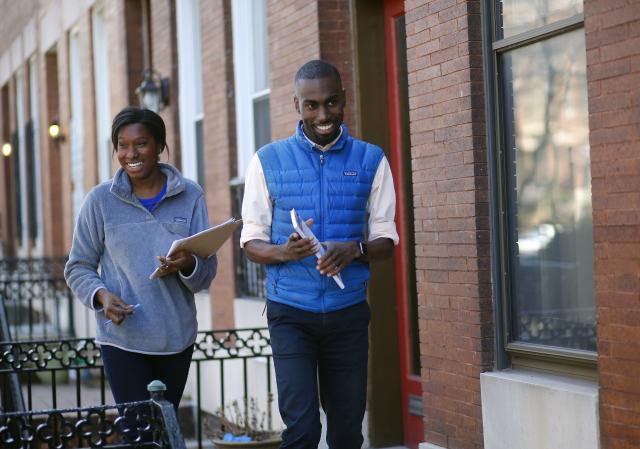
One of the most high-profile figures in the Black Lives Matter movement, Mckesson, a 30-year-old who was born in Baltimore, has for three months been running a long-shot campaign for mayor of his hometown. In his unlikely effort to bring the movement from the streets to City Hall, Mckesson, wearing his distinctive blue vest, has tried to turn the name he made for himself documenting the unrest in Ferguson into a springboard to leading a city facing similar strife.
Starting last April 18, riots rocked Baltimore after it was revealed Freddie Gray, a 25-year-old African-American man, suffered severe spinal injuries while being taken into police custody. Gray eventually died as a result of his injuries, and the state’s attorney filed criminal charges against the six officers who were involved in his death. The case is still ongoing, but the initial reaction in the city led to a state of emergency, curfews, and the National Guard being called in. Mckesson, who had previously returned to the city, was on the streets during the upheaval.
Mayor Stephanie Rawlings-Blake, a Democrat, faced intense criticism for her handling of the riots, and last December, she announced she would not seek reelection. Her decision set the stage for the crowded race featuring Mckesson and 12 other candidates in today’s Democratic mayoral primary. And in a city where the electorate is overwhelmingly registered in the party, the Democratic primary is tantamount to the general election.
At a town hall on Saturday, President Obama praised Black Lives Matter for being “really effective in bringing attention to problems” of racial injustice. But, he suggested, the group “can’t just keep on yelling.”
“The value of social movements and activism is to get you at the table, get you in the room,” Obama said.
Mckesson clearly is making an effort to bring Black Lives Matter out of the streets and into the halls of power. With a majority of African-American residents and clear concerns about law enforcement in the community, Baltimore seems like the ideal setting for that effort. However, Mckesson’s campaign has faced a unique set of obstacles due to his prominence in the movement, and his bid seems to have resonated more with rich Baltimoreans than residents of poor black neighborhoods, where many have abandoned electoral politics.
Speaking to the students at UMBC last week, Mckesson explained some of his rationale for running for office. He contrasted this perspective with that of others in the movement, whom he described as “addicted” to protesting rather than working within the system.
“We also need to be the people who are on the boards and commissions … in actual power. The status quo that we are resisting is super organized on the inside, and an outside-only strategy, I think, is not a strategy to win. I think it’s a strategy to fight forever and ever,” Mckesson explained. “Our goal is not to fight forever and ever, and I do worry that, in the movement space, that there are people more addicted to fighting than winning.”
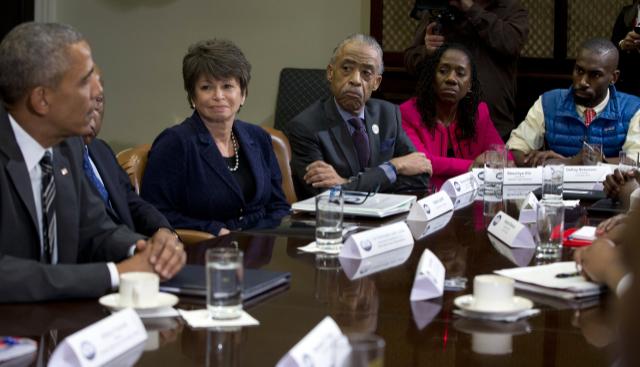
Mckesson described this dichotomy as “a split around reform and revolution that happens in the movement” with revolutionaries fighting for “100-year goals,” such as establishing new political parties, in lieu of bringing “change today and tomorrow.”
Mckesson, who regularly describes his mayoral campaign platform as being focused on “concrete change,” has no problem being identified as a reformer rather than a revolutionary. He believes long-term political goals should be pursued in conjunction with realistic programs for criminal justice reform, education, and affordable housing, he told the UMBC students.
“If getting more people out of jail makes me a reformer, then like, I’m all about it. Right? And if ending cash bail tomorrow is like, ‘I’m a reformer,’ then fine, right?” he said.
Mckesson burst onto the national scene by documenting the Ferguson protests on social media and in a newsletter. When Brown died, Mckesson was living in Minneapolis, Minn., where he worked as the director of human capital with the city’s public school system. Mckesson says he decided to drive to Ferguson in an attempt to square the different narratives he was seeing on Twitter and television, and said that being hit with tear gas inspired him to join the protests. He basically never left.
During the first half of last year, Mckesson traveled around the country to cities where young African-Americans died at the hands of the police, and other locations where protests erupted — such as Charleston, S.C., where a white supremacist killed nine people at a black church, and Missouri, where racial issues led to mass demonstrations at the state’s flagship public university. Along with participating in protests, Mckesson helped found a group that crafted a Black Lives Matter policy agenda. Though he was not part of the organization that originally coined the phrase, Mckesson’s relentless tweets and trademark blue Patagonia vest eventually made him one of the most recognizable faces of the movement, and drew in more than 340,000 Twitter followers.
Mckesson’s past as a high-profile protester has given him unusual resources for a first-time candidate. But at the same time, his visibility within Black Lives Matter movement has generated a harsh spotlight, including backlash from other activists. And while Mckesson’s unique brand of political celebrity has brought him donations from all 50 states, high-powered allies and intense national press coverage, his position at the bottom of the polls indicates it hasn’t translated into the support necessary to win the race.
Black Lives Matter hasn’t been the central element of his pitch to voters.
He spends much more of his time talking about his background as a teacher with high-level administrative roles at large public education agencies. In addition to his position with the school system in Minneapolis, Mckesson worked in human capital for Baltimore City Public Schools from August 2011 until the end of 2013. He also helped lead an afterschool program in Baltimore a few years after his 2007 graduation from Bowdoin College.
And police reform is only a small portion of his platform, which is largely focused on a series of what he describes as “tangible things that we can do that might not be the most sexy.”
Among other things, Mckesson wants to get mayoral control over city schools and, in the meantime, establish adult and childhood literacy programs. He wants to employ strategies to fill Baltimore’s blighted blocks of vacant homes that are tailored to specific neighborhoods and coupled with a plan to address urban food deserts. He is calling for creating cultural opportunities for the city’s young people like movie theaters, arts programs, and dirt bike parks. And yes, Mckesson also talks about plans for crime and policing, including establishing needle exchanges, mandating drug tests for officers involved in shootings and banning chokeholds.
Mckesson was the last high-profile Democratic candidate to officially enter the race. He filed his candidacy on the evening of Feb. 3, minutes before the deadline on the final day to register. On the campaign trail, Mckesson has attributed his late entry to the time he spent putting together his platform and the difficulty of finding an election lawyer who was not already tied to one of the other candidates.
“I spent a lot of time on the policy platform because I didn’t want to be a personality candidate,” Mckesson said to a crowd at a campaign event last Thursday night, adding, “Logistically, you know, there’s so many people running for office in this city that it actually took some time to find an election lawyer who was not conflicted.“
This delay meant Mckesson had just 83 days to campaign, when many of his rivals had been running for months. The time crunch was exacerbated by the fact many Baltimoreans participated in early voting. And this wasn’t the last time Mckesson’s status as a political newcomer cost him.
In his campaign appearances, Mckesson sounds something like a local version of Sen. Bernie Sanders, I-Vt. He calls himself “an outsider to the establishment” and “an insider to the city,” and touts the fact he has raised more than $200,000, largely from small donors. In fact, Mckesson uses the same firm that helped rope in the online donations that have fueled Sanders’ insurgency in the presidential race. However, the money Mckesson has raised is still far less than the funds raised by his top rivals, some of whom have seven-figure war chests. And his team, which includes just three paid staffers, is much smaller than his opponents’ operations.
While Mckesson’s activist career earned him meetings with President Obama, Sanders, and a slew of celebrities and Silicon Valley luminaries, he doesn’t have the endorsement of a single local elected official. His campaign manager, Sharhonda Bossier, told Yahoo News Mckesson hasn’t sought “political favors from politicians.”
“Our work has been rooted in connecting with as many voters as possible,” Bossier said.
And Mckesson has a lot of work to do on that front. The most recent Baltimore Sun poll showed he had the support of less than one percent of voters.
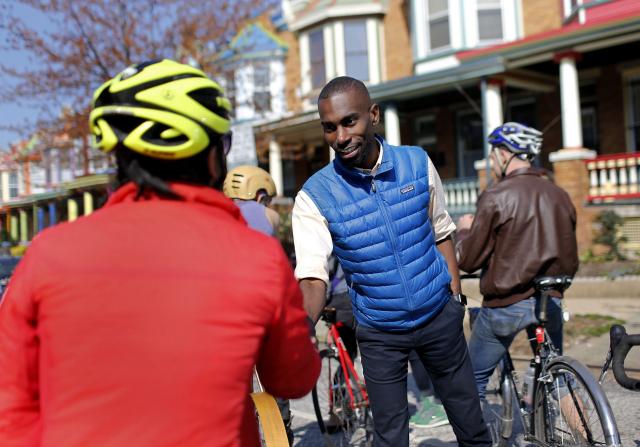
Mckesson and his team argue that the polls have understated his following. They cite the unusually high turnout in early voting and the fact the mayoral race is coinciding with a presidential primary as reasons the electorate will be fundamentally different than it has been in the past. Still, his loss Tuesday now seems a foregone conclusion.
Dr. Mileah Kromer, who directs the Sarah T. Hughes Field Politics Center at Baltimore’s Goucher College, which conducts polling in Maryland, said she doesn’t believe there are enough unique factors in this year’s race for Mckesson to come from so far behind and pass the two frontrunners: former Mayor Sheila Dixon and Maryland State Senate Majority Leader Catherine Pugh.
“While I do think there’s a real possibility for him to outperform the one percent which he’s polling at, I don’t think it will make up for the thirty-point gap,” Kromer told Yahoo News.
Given his trailing position in polls, Mckesson has drawn few attacks from the top candidates. Neither the Pugh nor the Dixon campaign responded to requests from Yahoo News to comment about Mckesson. He has polled too low to even enter several debates, and Dixon, when initially asked about Mckesson’s candidacy, said she had never heard of him.
While his actual opponents are ignoring him, Mckesson has been under relentless attack online. He is constantly on his phone, fielding an exhausting stream of Twitter messages, including vicious insults from conservatives.
Along with online sparring, Mckesson believes he’s taking unfair hits in the press. His mayoral bid has generated substantial coverage, but much of it has focused on his poor poll numbers and background as a protester rather than his platform.
Late last month, Mckesson began an effort to reach out to 30,000 voters in the final 30 days of his campaign. He says he has far exceeded that goal with mailers, phone calls, events, and by knocking on nearly 2,000 doors per day with a combination of his staff, volunteers and paid canvassers. However, Mckesson doesn’t believe he’s being credited for this ground work and the impact it could have.
Mckesson lamented the public perceptions surrounding his campaign when he spoke to the class at UMBC last week, saying people don’t believe he’s out meeting voters unless he documents it.
“The social media presence is a good thing and a bad thing sometimes. It does a lot to amplify the message in a way that is powerful. The hard part is that if I don’t put it on Twitter, people like literally act like it doesn’t exist,” Mckesson said, adding, “No other candidate has to prove every single thing they do.”
Some local activists have been reluctant to embrace him, and view him as insufficiently tied to the community. This opposition has also drawn substantial attention in the press.
Dr. Lawrence Brown, a local activist and professor at Baltimore’s historically black Morgan State University, attributed the critiques Mckesson has faced from other activists to the city’s “insular” nature.
“Home grown — you know, born, raised, and what people call ’doing the work’ here, you know — it like really, really means a lot. And he was born and raised here, but people haven’t necessarily seen him doing the work … in terms of maybe activism or protesting, you know — being visible in that regard,” Brown told Yahoo News. “So I think like he’s being penalized for Baltimore’s very unique sense of insularity … not really wanting outsiders to get a lot of credit or to hog the limelight.”
As a result of the bad press, Mckesson is guarded. When Yahoo News asked him about the benefits and disadvantages of his high-profile association with Black Lives Matter, he barely answered the question.
“The movement is made up of many people doing incredible work all across the country,” Mckesson said. “I’m proud to stand with them and I’m proud to be a part of this community. That’s my whole comment on the record.”
In his defensive posture, Mckesson prefers to let his platform and campaign work speak for itself. He sticks to the details of his platform in almost all conversations. The data points tumble out of him in a rapid-fire patter. His eagerness for people to hear the policies seems apparent. Mckesson also wants the world to know he’s out pounding the pavement looking for votes — and to see the reaction he’s getting in his travels around the city.
Last Thursday and Friday, Yahoo News tagged along as Mckesson spoke to the UMBC college class, a group at a local senior citizens center, and a forum for young local leaders. Mckesson generally generated an enthusiastic response. On Friday evening, he visited the Federal Hill neighborhood and spent a few hours walking a stretch of more than half a mile that is densely populated with quaint brick homes, and he and his team knocked on hundreds of doors. Several people he encountered were familiar with his activism.
“You’re a big deal! Thanks for stopping by!” said one man who seemed shocked to find Mckesson on his doorstep. “I admire your Twitter awesomeness actually. I really like your platform, and I’m a fan.”
During the evening, one person shut the door on Mckesson, though they only did so after offering a terse, “Thanks!”
A Johns Hopkins science professor ran into the street to meet Mckesson after hearing from his wife that the candidate was in the neighborhood.
“She said you were out here, so I figured I’d come out and meet the celebrity,” the professor said.
Like several other enthusiastic supporters, the professor alluded to the poll numbers and expressed hope that Mckesson would remain in the city and stay involved even if he loses the election.
“You’re not going to disappear, right?” he asked.
Though Mckesson said he had no “plans to move,” he noted he wanted to be “transparent” and said he desired an impactful position in local government, and was concerned he might not be able to attain one if he’s defeated by certain unnamed rivals.
“This is why I’m running for mayor, right? It’s like the one position that actually allows for you to have maximum impact,” Mckesson explained. “I think that … there are some people that, if they win, I won’t have a place.”
The neighborhood where he made the rounds on Friday evening is a relatively well-off, mostly white section of the city. In her conversation with Yahoo News, Bossier, his campaign manager, acknowledged that wealthier Baltimoreans are a key part of Mckesson’s base.
“The places where we didn’t have to do as much education around who he was … predominately white, middle-income communities. … People who watch MSNBC or are on Twitter and so know him from that and, like, read the New Yorker and so kind of know who he is from that kind of work,” Bossier said. She added, “And then middle-income and upper-income black folks know who he is — again, probably mostly because of his social media presence and activism.”
In general, poor and minority voters tend to vote less, and Baltimore has had a recent history of especially low turnout that experts have attributed to pessimism and apathy among residents.
On Saturday, Yahoo News visited the Gilmor Homes, the public housing project where Freddie Gray lived before his fatal arrest. The development is located in the Sandtown-Winchester neighborhood, a place where the streets are dotted with vacant homes and the statistics are grim. Last year, the poverty rate in Sandtown-Winchester was over 30 percent, almost a quarter of people were out of work, and the murder rate was almost twice the average for the rest of Baltimore even as the number of homicides in the city hit record highs.
The Gilmor Homes are a series of three-story apartments that open on to common areas. Some of the units are empty and boarded up. On Saturday, music blasted in the courtyard and people sat outside on stoops chatting with each other. Many of the residents we attempted to talk to declined to speak with us. None of the people we spoke to said they were aware of Mckesson, and almost all of them didn’t plan to vote.
One man, who declined to give his last name or spell out his first, complained about the condition of his home and a lack of support from the housing authority.
“I’m about to move out of here because they ain’t treating these people around here right, man. … Every time the mayor ask to shake your hand, they want to get voted. … They get voted in office … and you don’t see them no more,” the man said, adding, “There ain’t going to be no change … I’m going to change and get away from here.”
Shawnrice Kelly sat nearby with her sister. She echoed the man’s sentiments.
“I did vote. I did before, it ain’t interesting how it used to be when I was young, when I first started to vote. … I’m still going to be f***** at the end, whatever who wins,” Kelly said. “Everything’s still going to be the same. They say they’re going to help. Of course you’re going to say what you say to get your votes, but nobody cares. You got to make it out of this jungle on your own.”
Mckesson said he understands the “sense of disinvestment” among some voters in Baltimore’s poorer neighborhoods.
“For so many people, the government has not proven itself to be a productive force,” Mckesson said. “In so many ways, the government needs … to prove itself to people so they can be invested again. And I’m ready to do that as mayor. I know that that work isn’t necessarily quick work. It’s the right work, and it doesn’t happen overnight.”
Another man who spoke to Yahoo News in the Gilmor Houses and declined to give his name had no comment about the mayoral election. However, he did offer an observation on the national political scene.
“I just came home from prison. I’m going to be honest: If the president of the United States becomes Donald Trump, it’s going to be hell out here,” the man said. “It’s already hell, but it’s going to transform into the real version.”
If the man’s prediction comes true and “hell” breaks out in Baltimore this November, it’s safe to say we’ll see Mckesson there in the streets. For now, it seems far more likely he’ll be there as a protester rather than a politician.

